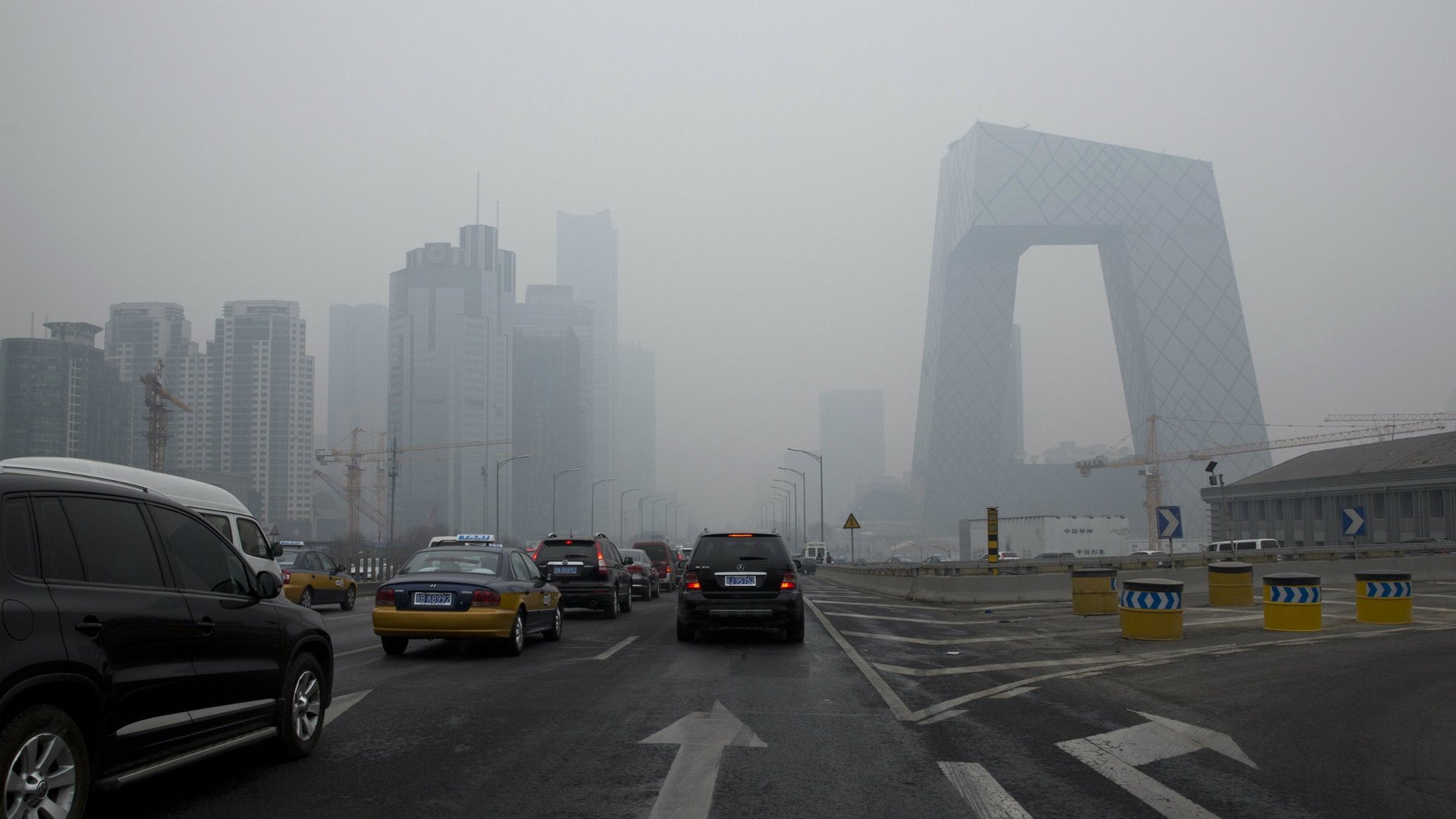Beijing just handed out the city’s largest-ever fine for air pollution—to a US joint venture
Beijing officials have struggled to clean up the oppressively polluted capital city’s air by limiting cars, curbing production in nearby provinces, and promising tough new quotas and fines for offenders.


Beijing officials have struggled to clean up the oppressively polluted capital city’s air by limiting cars, curbing production in nearby provinces, and promising tough new quotas and fines for offenders.
City authorities announced their biggest fine yet today, a 300,000 yuan ($48,092) penalty for boiler maker Babcock & Wilcox Beijing. The company is a joint venture between Charlotte, North Carolina’s Babcock & Wilcox, which has been making boilers since the 1860s, and Beijing Boiler Works.
The company was fined for “repeatedly painting utility boilers in the open air without any protective measures for reducing air pollution,” the China Daily reported, citing the Beijing Environmental Protection Bureau.
The public naming and shaming of a mid-sized foreign joint venture as the city’s top offender rather than, say, the coal-fired power plants inside the city that some believe account for half of Beijing’s pollution may seem odd. There are echos of last year’s series of investigations into fraud and shoddy practices in pharmaceutical and baby formula industries, which targeted foreign firms and sparked accusations that China was trying to bolster its domestic industry as the economy slowed.
But officials say they have their reasons for concentrating on open-air boiler painting.
The joint venture, which employs 2,000 people in Beijing’s Shijingshan district, was picked specifically because it had not adopted any remedial measures after past fines, they said. And painting in the open air is definitely an air-pollution hazard. The Beijing Municipal Environmental Monitoring Corps said that they will be introducing more strict environmental standards for the industrial coating industry in the future, and will pressure these organizations to move out of Beijing.
In an e-mail, Babcock & Wilcox spokesman Ryan Cornell said the company “takes environmental regulations seriously and is working diligently with its joint venture partner to comply with the city of Beijing’s rules.” The joint venture is constructing an indoor, enclosed painting facility which will be completed in the third quarter of this year, he said.
Late last year the Chinese Academy of Sciences said that industrial pollution was the biggest cause of Beijing’s smog, far ahead of coal-powered plants or cars, research that was quickly disputed by another scientific agency in China. Whatever the case, widespread measures to move industry outside the city are underway—300 factories will be shut in Beijing this year and power plants relocated in a controversial plan to shift polluting industries to China’s less-populated western regions.
Meanwhile, Beijing’s environmental monitoring team plans to continue their crackdown, officials told China Daily. Their next targets include furniture makers and illegal outdoor barbecues.